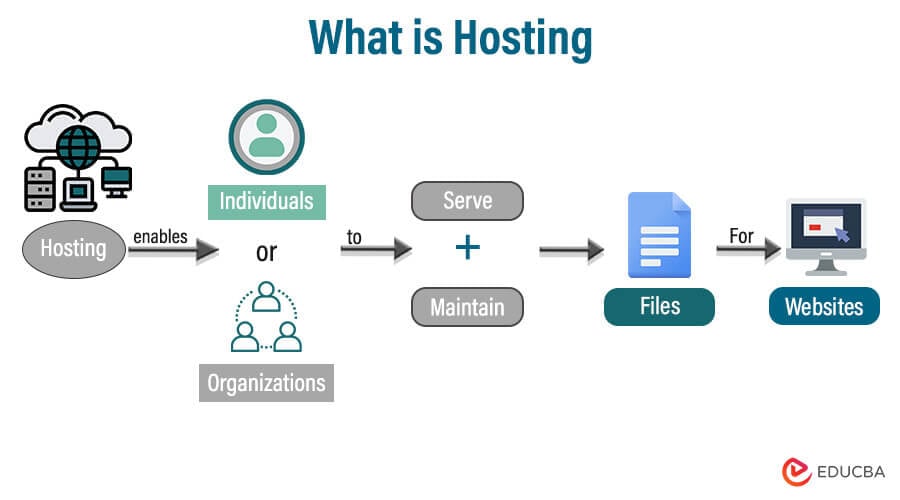Checking Out Various Types of Internet Hosting Services for Diverse Site Demands
Various choices, such as shared organizing, VPS, dedicated web servers, and cloud remedies, provide to a range of demands from individual blog sites to complex business applications. Each organizing type provides distinctive advantages and constraints that can significantly affect efficiency, cost-effectiveness, and scalability.
Shared Hosting Overview
Shared organizing is a preferred webhosting solution that permits multiple web sites to stay on a solitary web server, sharing its resources such as transmission capacity and storage. This kind of organizing is particularly attracting people and local business due to its cost-effectiveness. By merging resources, users can profit from reduced costs compared to committed hosting solutions where a solitary web server is alloted to just one site.
In a shared organizing setting, the server's resources are divided among different customers, which suggests that heavy web traffic on one site might impact the efficiency of others. A lot of shared organizing service providers implement actions to manage resource allotment effectively. This remedy generally includes attributes such as email accounts, online documents monitoring, and one-click application setups, making it user-friendly for those with restricted technological experience.
Shared organizing is ideal for personal blog sites, local business internet sites, and profiles that do not expect high levels of website traffic. It is essential to choose a reliable hosting company to ensure reputable uptime and ample consumer support. While shared holding is a functional starting point, users need to check their web site's development and performance to establish if an upgrade to an extra robust organizing solution may at some point be required.
VPS Hosting Explained
VPS organizing, or Virtual Private Server organizing, provides a considerable upgrade from shared holding by supplying users with dedicated resources on a virtualized server. This model successfully separates each customer's environment, permitting for greater control, performance, and modification. Unlike shared hosting, where resources are distributed amongst several customers, VPS organizing allots a specific quantity of CPU, RAM, and storage space per web server, making sure that efficiency is not impeded by bordering accounts.
VPS hosting is specifically useful for organizations and websites that experience varying traffic, as it can suit development without the demand for a complete overhaul of the organizing infrastructure. Customers can set up custom-made software program, set up server setups, and handle safety procedures customized to their certain demands.
Furthermore, VPS holding strikes a balance in between cost and performance - 10 Best Web Hosting Services. While it is generally extra costly than shared holding, it is significantly much more inexpensive than dedicated servers, making it an excellent selection for medium-sized ventures or programmers looking for trusted efficiency without too much expense. Generally, VPS hosting offers as a durable remedy for those requiring improved reliability, protection, and scalability for their online ventures
Committed Server Benefits
When thinking about the needs of a growing business, opting for a committed web server can significantly raise performance and control. Devoted servers supply a special setting customized to the particular needs of an organization, guaranteeing optimal source appropriation without the interference of bordering internet sites. This seclusion not only improves rate and dependability however likewise permits constant efficiency, particularly under high website traffic problems.
An additional secret advantage of specialized hosting is the degree of modification it uses. Companies can configure their servers to meet unique specifications, picking the go to website operating system, hardware, and software program that ideal align with their operational demands. This adaptability fosters boosted safety and security procedures, as companies can execute tailored safety and security methods and firewall software configurations to secure delicate information.

Cloud Hosting Functions
Cloud organizing deals a versatile and scalable option that enhances the devoted server environment, accommodating services that require vibrant source allowance and high accessibility. Among the main features of cloud holding is its on-demand resource provisioning, allowing companies to scale their sources up or down based on real-time needs. This elasticity guarantees that sites can handle varying web traffic tons without efficiency destruction.
An additional substantial benefit is the redundancy and dependability supplied by cloud design - 10 Best Web Hosting Services. Data is saved across numerous web servers, guaranteeing that if one server fails, others can perfectly take control of, reducing downtime and enhancing user experience. Furthermore, cloud hosting generally consists of automatic backups, which protect information and promote recovery in instance of unforeseen incidents
Price effectiveness is another remarkable function, as services only spend for the resources they make use of, staying clear of the prices connected with underused devoted servers. In addition, cloud organizing frequently features advanced protection measures, including encryption and firewall softwares, to secure sensitive information from cyber hazards.
Choosing the Right Option
Picking the suitable host alternative calls for a careful assessment of various elements site web that line up with a service's details requirements and goals. Secret factors to consider include the sort of site being hosted, expected traffic levels, and budget plan constraints. Tiny businesses with restricted website traffic might discover common organizing sufficient, while bigger ventures or e-commerce sites might require committed or cloud holding for boosted performance and safety and security.
Additionally, the technological expertise of the group is critical. Individuals with very little technological knowledge could take advantage of taken care of organizing services, which supply assistance and maintenance. Conversely, tech-savvy groups might favor VPS or committed servers, allowing for greater customization and control.

Verdict
To conclude, comprehending the various kinds of webhosting services is essential for lining up site demands with the proper option. Shared hosting offers well for low-traffic websites, while VPS hosting accommodates medium-sized enterprises with its customizable resources. Devoted servers give ideal efficiency for high-demand applications, and cloud hosting deals exceptional flexibility. Cautious evaluation of website traffic assumptions, budget plan restraints, and technological know-how will certainly allow educated decisions, ultimately guaranteeing the selection of the most suitable holding option for details requirements.
Shared holding is a prominent web hosting solution that permits numerous websites to reside on a solitary web server, sharing its resources such as bandwidth and storage space. While shared organizing is a practical starting point, individuals should check their internet site's growth and efficiency to determine if an upgrade to a much more durable hosting option might ultimately be needed.
VPS organizing, or Virtual Private Server holding, provides a significant upgrade from shared organizing by giving individuals with dedicated resources on a virtualized web server. Unlike shared holding, where sources are dispersed amongst numerous individuals, VPS organizing allots a specific amount of CPU, RAM, and storage to each web server, making sure that efficiency is not impeded by neighboring accounts.
Small services with limited traffic might locate shared hosting adequate, while larger ventures or e-commerce websites may require dedicated or cloud holding for enhanced efficiency and safety and security.